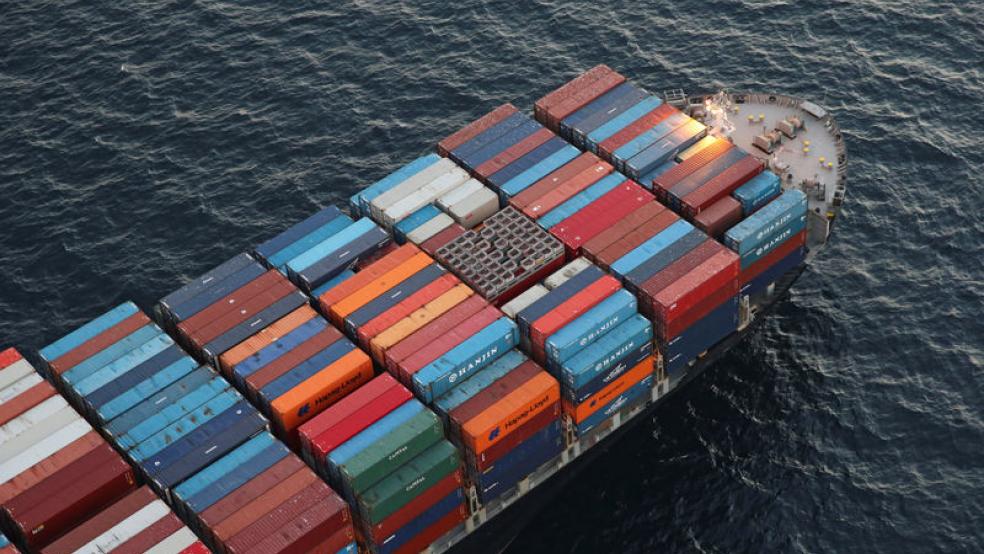Hours before another round of trade talks with China concluded without resolution Friday, the Trump administration increased tariffs on $200 billion worth of Chinese imports, raising the rate on a subset of goods from 10% to 25%. The administration has also threatened to impose tariffs on an additional $350 billion worth of Chinese imports in the near future.
In a series of tweets Friday morning, President Trump said he was in no rush to complete a trade deal and repeated his claim that tariffs boost the U.S. economy overall. “Tariffs will make our Country MUCH STRONGER, not weaker,” Trump wrote. “Just sit back and watch!”
The president also continued to portray the tariffs as a windfall paid by China to the U.S. government.
“These massive payments go directly to the Treasury of the U.S.,” the president wrote, adding that “Tariffs will bring in FAR MORE wealth to our Country than even a phenomenal deal of the traditional kind.”
That's not how tariffs work
Not for the first time, critics of Trump’s trade strategy accused the president of fundamentally failing to understand how tariffs work. Saying that the “level of factually wrong info from the president this morning is high,” Heather Long of The Washington Post noted that “Americans are paying tariffs, not the Chinese” and that Trump’s tariff increases are effectively a new tax on American companies and consumers. “Pretty much every economist predicts tariffs will hurt the economy,” Long said.
Updating their analysis of the economic impact of Trump’s tariffs, researchers at the conservative Tax Foundation said that the “Trump administration's 25 percent tariff on $200 billion worth of Chinese goods amounts to a $50 billion tax increase.” Taken together, Trump’s tariffs imposed on Chinese goods so far amount to a total tax on U.S. companies and consumers of nearly $72 billion.
According to the Tax Foundation’s economic model, if left in place the tariffs will cause the economy to be 0.21% smaller in the long run than it would have been otherwise while lowering overall wages by 0.13% and eliminating about 161,000 jobs. If the Trump administration imposes tariffs on virtually all Chinese goods, as the president has threatened to do, the effects would be greater, with long-run GDP 0.45% lower than it would have been without the tariffs, wages 0.29% lower, and nearly 350,000 jobs lost.
Trump’s tariffs could also set off a round of retaliatory tariffs by China and other nations affected by the growing trade war, including Mexico, Canada and the European Union. The Tax Foundation said that if all tariffs announced so far were fully imposed, U.S. GDP would be reduced by 0.75 percent in the long run -- “effectively offsetting almost one-half of the long-run impact of the Tax Cuts and Jobs Act.”
Farm sector woes
The Association of Equipment Manufacturers, which represents more than 1,000 producers of farm and construction equipment, said this week that Trump’s tariffs are already hurting the U.S. agricultural sector. “Right now, farmers, workers, business owners, and families alike—all across the nation—are being hurt by tariffs,” the AEM said in a statement Thursday. “These tariffs are taxes on Americans, and they have already caused enormous pain.” The group warned that the tariffs could cost as many as 400,000 jobs in the U.S. farm economy over 10 years if they remain in place.
Although critics have complained about the size and execution of the program, the Trump administration has authorized $12 billion in aid to farmers hurt by Chinese tariffs and has recently signaled that it plans to do more. In his tweets Friday, Trump suggested that the funds collected from his higher tariffs could be used to buy goods from American farmers hurt by the trade war, which could then be sent to “poor & starving countries in the form of humanitarian assistance.”
But Chad Bown, a trade expert at the Peterson Institute for International Economics, said that providing new federal subsidies for farmers would be problematic. For starters, Bown said that the “new federal subsidies would be massively expensive” for the U.S. (The Washington Post’s Catherine Rampell sarcastically tweeted, “why sell soybeans to China when instead we could borrow from China to pay soybean farms to NOT sell soybeans to China.”)
In addition, flooding foreign markets with U.S. agricultural goods would be illegal under World Trade Organization regulations and “would devastate farmers in poor countries and hurt those in allies (Australia, Canada),” potentially sparking a global trade war. Bown also noted that a lot of the farm goods sold to China can’t be used to feed humans – “Right now, the soybeans sold to China are used to feed livestock, not people.”




